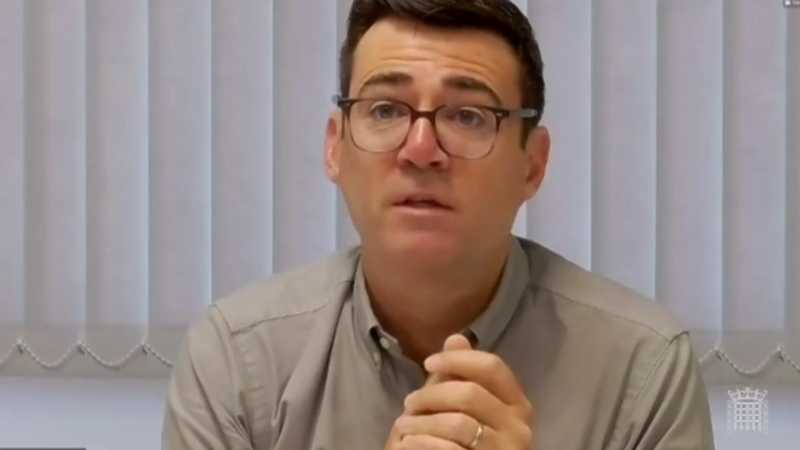It follows a series of scandals over 'pork barrel' politics in the government's levelling up spending.

The Mayor of Greater Manchester, Andy Burnham, has hit out at the UK government’s approach to ‘levelling up’ the UK, saying it risks further dividing the country.
The warning comes after a series of scandals in ministers’ ‘levelling up’ funding packages, which critics have noted are often targeted at swing constituencies or Tory strongholds.
Recent analysis found that the Tories handed 83% of their £610m boost to towns to areas with only Conservative MPs. The Mirror found that of the latest list of 26 towns benefiting from the fund, only four were represented by MPs of any other party.
It followed a National Audit Office report in July which showed that 61 of the 101 towns in the first list, announced in 2019, were chosen by Tory ministers, rather than neutral civil servants. “All but one of these were either Tory-held seats or targets,” the paper reported. Ministers were accused of rigging the criteria for picking the towns based on party interests.
Addressing MPs on the Commons’ Public Administration and Constitutional Affairs Committee (PACAC), he said: “The danger of levelling up is using that in a divisive way – ‘you can have some funding but you can’t’. The divisions of this country will only be widened.”
Burnham said the Tories’ current approach to English devolution creates a ‘bidding culture’, with areas only getting devolution packages based on what they can offer Whitehall in terms of economic growth. The mayor says this reflected an attitude of ‘we don’t trust any of you, so you should all queue up to put your best [pitch]’.
The elected mayor – who was re-elected in May –hit out at Westminster’s ‘tendency to centralise control’, which began in the 80s. “It carried on with the [New Labour] government I was in. The culture has become baked in, [that you] just can’t trust people on the ground. The pandemic has completely disproven it.”
“Central government has tried to create these grand schemes of test and trace and so on [during the pandemic], and it hasn’t worked. Test, trace and isolate would have been so different if it had been localised from the start,” he told the committee.
Burnham called on ministers to ‘fill in the map’ of English devolution: “Come up with a model of devolution for all parts of England.”
He urged ‘all parties’ to support English devolution, which is ‘beginning to work’.
But he noted that there is no formal mechanism bringing together devolved governments across the UK – as demonstrated by the recent row with Scotland’s government, after Nicola Sturgeon temporarily banned travel to Manchester over Covid concerns.
“In our case, it literally was the case of reading it in the Guardian on the Saturday after it was announced. Clearly it was problematic. I’m not saying the Scots couldn’t’ have made a case [for their restrictions], but clearly it could have been better handled,” Burnham told MPs.
He added that the UK’s political parties – presumably including Labour – have a ‘blind spot’ when it comes to English devolution, indicating that he backs more regional autonomy within the Labour party. And he called for the House of Lords to be transformed to a directly or indirectly elected chamber representing the nations and regions. “I don’t see any justification in any way for the House of Lords continuing in its current form,” the Labour mayor said.
As the Institute for Government has noted, metro mayors, also known as ‘combined authority mayors’, are directly elected leaders of city regions that span a number of local council areas, usually based around a central urban hub: “As part of the government’s devolution agenda, various powers and budgets have been devolved to MCAs following a series of ‘devolution deals’ struck between Whitehall and local leaders between 2014 and 2020.”
Nine city regions in England currently have metro mayors, starting in 2017, covering about 40% of England’s population, including Greater London. Each area’s combined authority has slightly different powers, reflecting the piecemeal nature of devolution in England.
The comments come as part of PACAC’s inquiry into the state of devolution in England. Labour is currently organising a constitutional commission which will review the party’s policy on devolution.
To reach hundreds of thousands of new readers we need to grow our donor base substantially.
That's why in 2024, we are seeking to generate 150 additional regular donors to support Left Foot Forward's work.
We still need another 117 people to donate to hit the target. You can help. Donate today.



